
Gothic fiction, sometimes called Gothic horror, is a loose literary aesthetic of fear and haunting. The name refers to Gothic architecture of the European Middle Ages, which was characteristic of the settings of early Gothic novels.

Dame Daphne du Maurier, Lady Browning, was an English novelist, biographer and playwright. Her parents were actor-manager Sir Gerald du Maurier and his wife, actress Muriel Beaumont. Her grandfather was George du Maurier, a writer and cartoonist.

Eleanor Alice Hibbert was an English writer of historical romances. She was a prolific writer who published several books a year in different literary genres, each genre under a different pen name: Jean Plaidy for fictionalized history of European royalty, Victoria Holt for gothic romances, and Philippa Carr for a multi-generational family saga. She also wrote light romances, crime novels, murder mysteries and thrillers under pseudonyms Eleanor Burford, Elbur Ford, Kathleen Kellow, Anna Percival, and Ellalice Tate.
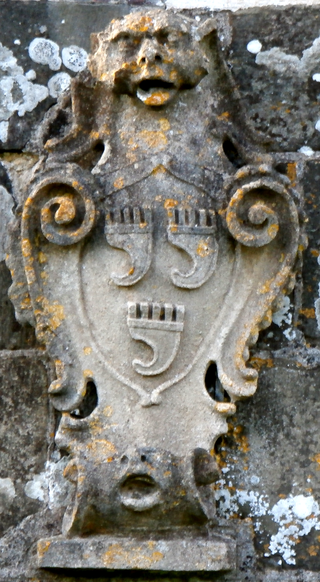
Sir Richard Grenville was a professional soldier from Cornwall, who served in the Thirty Years War, and 1638 to 1651 Wars of the Three Kingdoms. He was the younger brother of Sir Bevil Grenville, who died at Lansdowne in 1643, and grandson of Admiral Sir Richard, killed at Flores in 1591.

Manderley is a fictional estate in Daphne du Maurier's 1938 novel Rebecca, owned by the character Maxim de Winter.

Rebecca is a 1938 Gothic novel written by English author Daphne du Maurier. The novel depicts an unnamed young woman who impetuously marries a wealthy widower, before discovering that both he and his household are haunted by the memory of his late first wife, Rebecca.

The Royal Fowey Yacht Club is located in a waterfront setting at Fowey, on the south coast of Cornwall one of the UK's most secure harbours.

Tywardreath is a small hilltop village on the south coast of Cornwall, England, United Kingdom, about 3 miles (5 km) north west of Fowey. It is located in a sheltered spot overlooking a silted up estuary opposite Par and near the beach of Par Sands. It is on the Saints' Way path.

Rebecca's Tale is a 2001 novel by British author Sally Beauman. The book is a sequel to the Daphne du Maurier novel Rebecca and is officially approved by the Du Maurier estate. It continues the original plot and is also roughly consistent with the 1993 sequel Mrs de Winter by Susan Hill.

Rashleigh is a surname of a prominent family from Cornwall and Devon in south western Britain, which originated in the 14th century or before at the estate of Rashleigh in the parish of Wembworthy, Devon. The principal branches were:
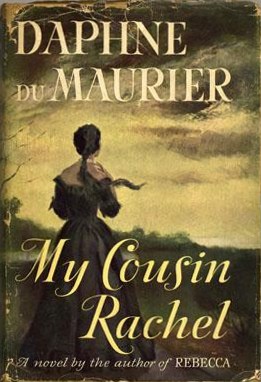
My Cousin Rachel is a Gothic novel written by English author Daphne du Maurier, published in 1951. Bearing thematic similarities to her earlier and more famous novel Rebecca, it is a mystery-romance, set primarily on a large estate in Cornwall.
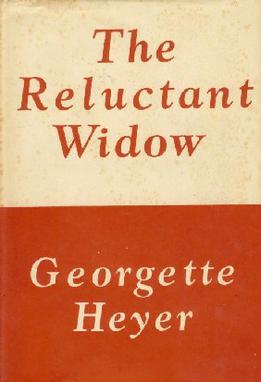
The Reluctant Widow is a 1946 Regency romance by Georgette Heyer, published by Heinemann in the UK, and by Putnam the following year in the US. A humorous parody of a Gothic Novel, it is set in early 1813. It was published with the description "By midnight she is a bride, by dawn a widow", and with gouache artwork by Philip Gough.

The House on the Strand is a novel by Daphne du Maurier, first published in the UK in 1969 by Victor Gollancz, with a jacket illustration by her daughter, Flavia Tower. The US edition was published by Doubleday.

Bodinnick is a riverside village in south-east Cornwall, in the United Kingdom. According to the Post Office the population of the 2011 Census was included in the civil parish of Lanteglos-by-Fowey. It is a fishing village situated on the east bank of the River Fowey opposite the town of Fowey, also on the banks of the Fowey River. The ferry crossing is from Fowey to Bodinnick and the "Old Ferry Inn" is located on its bank glorified as "in the heart of Du Maurier country". This ferry terminal is said to have existed since the 13th century.
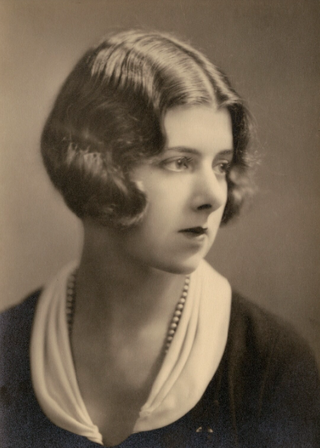
Angela Busson du Maurier was an English actress and novelist who also wrote two volumes of autobiography, It's Only the Sister (1951) and Old Maids Remember (1965). Her sister was the novelist Daphne du Maurier, and her grandfather was George du Maurier, a writer and cartoonist.

Menabilly is a historic estate on the south coast of Cornwall, England, situated within the parish of Tywardreath on the Gribben peninsula about 2 miles (3.2 km) west of Fowey.

Jonathan I Rashleigh, of Menabilly, near Fowey in Cornwall, was an English shipping-merchant, Member of Parliament for Fowey in 1614, 1621, 1625, April 1640 and November 1640, and 1661 and served as Sheriff of Cornwall in 1627. He supported the Royalist cause during the Civil War.
Lady Auriel Rosemary Malet Vaughan was a Welsh-born author of literary fiction and biographies, who wrote under the name of Oriel Malet. Among her works is a fictionalized biography of the Scottish child poet and writer Marjory Fleming and a volume charting her 30-year friendship with Daphne Du Maurier.
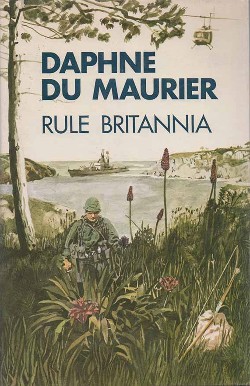
Rule Britannia is Daphne du Maurier's last novel, published in 1972 by Victor Gollancz. The novel is set in a fictional near future in which the UK's recent withdrawal from the EEC has brought the country to the verge of bankruptcy.

Daphne is a 2007 British biographical drama film written by Amy Jenkins and directed by Clare Beavan. The film is based on the authorised biography, Daphne du Maurier: The Secret Life of the Renowned Storyteller by Margaret Forster. It stars Geraldine Somerville, Elizabeth McGovern and Janet McTeer. It premiered on BBC Two on 12 May 2007. It was filmed on location in London, Devon and Cornwall, where du Maurier spent much of her life and most of her works are set.

















